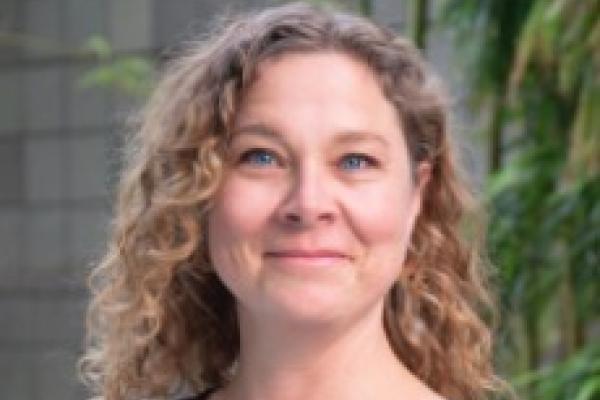
You are cordially invited!
Chantelle Warner
(The University of Arizona)
Towards a human-centered approach
to language/culture education
February 13, 2024
4:30-6:00pm
Lazenby 034
This talk participates in two on-going conversations in second language studies that have gained momentum in recent years and have the potential to inspire work in German Studies. In the first, languages are promoted as not simply formal structures for encoding ideas but as socially and culturally shaped systems for designing meaning (e.g., Kramsch 2011; Liddicoat & Scarino 2013; van Lier 2004; Warner & Dupuy 2018). The second relates to the affective dimensions of language and culture learning; a core argument here is that the personal, subjective, and aesthetic aspects of learning a new language are not a bug in our internal language acquisition systems, but rather an essential and significant feature of language as it is lived, through human relations with one another, the world, and themselves (e.g., Leander & Ehret 2019; Warner 2024). The principle that language shapes not only how we communicate, but how we make sense (read: meanings and feelings) of human activities and our environments has led some to argue that the second language-culture classroom is an ideal space for realizing humanistic learning goals, including those related to critical language awareness and imaginative world building. Drawing on examples from university German language/culture classes, this talk proposes a framework for this kind of human-centered approach based in the notion of play as a critical, aesthetic, and potentially hopeful form of linguistic activity.
References
Kramsch, Claire “The symbolic dimensions of the intercultural.” Language Teaching 44 (2011), 354–367.
Leander, Kevin and Christian Ehret, eds. Affect in Literacy Learning and Teaching: Pedagogies, Politics and Coming to Know. London/New York: Routledge, 2019.
Levine, Glenn. “A human ecological language pedagogy.” Modern Language Journal 104, no. 1 (2020): 1–130.
Liddicoat, Anthony and Angela Scarino. Intercultural Language Teaching and Learning. Oxford: Wiley-Blackwell, 2013.
Oxford, Rebecca L., María Matilde Olivero, Melinda Harrison, and Tammy Gregersen, eds. Peacebuilding in Language Education: Innovations in Theory and Practice. Bristol, UK: Multilingual Matters, 2020.
Phipps, Alison, and Mike Gonzalez. Modern Languages: Learning and Teaching in an Intercultural Field. Thousand Oaks, CA: Sage, 2004.
Ros i Solé, Cristina. The Personal World of the Language Learner. New York: Springer, 2016.
van Lier, Leo. The Ecology and Semiotics of Language Learning: A Sociocultural Perspective. Dordrecht: Kluwer Academic, 2004.
Warner, Chantelle. Designs and Desires: Multiliteracy Play in the Second Language Classroom. Bloomsbury, 2024 (in press).
Warner, Chantelle and Dupuy, Beatrice. “Moving towards multiliteracies in foreign language teaching: Past and present perspectives … and beyond.” Foreign Language Annals, 51 (2018): 116–128.
_____________________________________
Professor Warner is Professor of German & Second Language Acquisition and Teaching. She co-directs the Center for Educational Resources in Culture, Language and Literacy (CERCLL), a Title VI National Language Resource Center supported through the U.S. Department of Education. Since 2014, she has also served as the Language Program Director for German Studies, and in this role, she enjoys getting to support both the undergraduate students and our Graduate Assistant Teachers in the first two years of language and culture study.
Dr. Warner's research crosses the fields of applied linguistics, stylistics/poetics, and literary studies. Together with Niko Euba, she is author of the textbook Lesewerkstatt DaF: Literatur Lesen Lernen (Klett Verlag) for advanced German learners. She is particularly interested in how individuals engage in creative, playful, and subversive language use as they negotiate complex social and symbolic worlds. This has informed her research in a variety of areas related to applied linguistics and language/intercultural education including...
- aesthetic and experiential dimensions of language teaching and learning
- multiliteracies pedagogies
- technology-enhanced second language literacy development
- literature and intercultural learning
Her full list of publications can be found on her website.
Her current books project, tentatively titled Multiliteracy Play: Designs and Desires in the Language Classroom, builds on current discussions of multiliteracies approaches to language/culture teaching and case studies from university-level language classes, to argue for a framework that recognize both designs, the conventionalized ways of making meaning in a language/culture, and desires, the affects and emotions that feed literacy experiences, by centering poetics and play in learning experiences.
